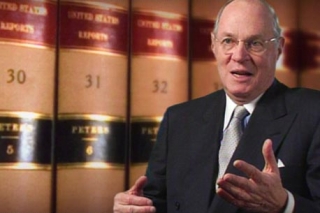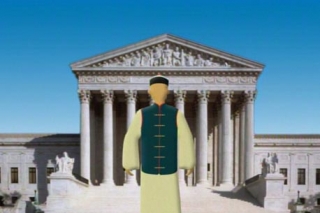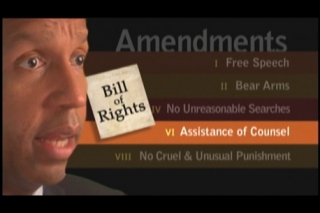About the Film
We don’t know a lot about Yick Wo. We’re not even sure that was his name. But it was the name of the laundry business he owned in San Francisco in the late 19th century. And it was the name listed on a Supreme Court decision that forever changed American law.
View the trailer.
In 1880, the city of San Francisco passed a health and safety ordinance: All laundries in wooden buildings had to get the approval of the Board of Supervisors in order to obtain a license. The law, on its face, didn’t single out the Chinese. But when it was applied, every Chinese laundry owner in the city was denied a permit. Every white-owned laundry was granted a permit.
Yick Wo refused to shut down his business and was arrested. He fought his case from behind bars. He took it all the way to the Supreme Court.
The Supreme Court determined that the ordinance was unconstitutional under the 14th Amendment’s “equal protection” clause – because of the unequal application of the law. It was the very first Supreme Court case to use this standard – and it did so almost 80 years before the Court’s landmark rulings striking down Jim Crow statutes enacted in the segregationist South.
“The holding of Yick Wo ,” Supreme Court Justice Anthony Kennedy says in the film, “was that a law that’s administered with an evil eye or an unequal hand violates your right to equal protection.”
But that wasn’t the only precedent set by this remarkable case. Yick Wo was not an American citizen – because by law he wasn’t allowed to be. Yet the Court ruled that his rights were still protected by the 14th Amendment because it says that no state shall “deny to any person within its jurisdiction the equal protection of the laws.” It does not limit that protection only to citizens.
Since the case was decided in 1886, the decision has been cited in more than 160 opinions in the Supreme Court alone.
Yick Wo and the Equal Protection Clause tells the story of an unlikely Constitutional hero and the extraordinary impact his case has had on how we view our Constitutional protections today.
Image Gallery
[Not a valid template]
Further Reading
Find out more about Chinese immigration to California in the 19th century
Read the Supreme Court’s decision in Yick Wo v. Hopkins
Credits
Producer, Writer and Narrator, Robe Imbriano
Field Producer, Carla Denly
Associate Producer, Sandra McDaniel
Editor, Marc Tidalgo
Graphics Animators, Hiroaki Sasa and Victoria Nece
Camera, Dave Dellaria, Brett Wiley and Edward Marritz
Production Associate, Gregory Blanc
Research, María E. Matasar-Padilla
Supervising Producer, Christina Lowery
Sound, Dave Baum, Brian Buckley and Mark Mandler
Music, Ben Decter and Gavin Allen
Interns, Hannah Dillon, Mimi Giboin, Yvonne Liu and Mel Zahnd
Senior Producer, Kayce Freed Jennings
Executive Producer, Tom Yellin




